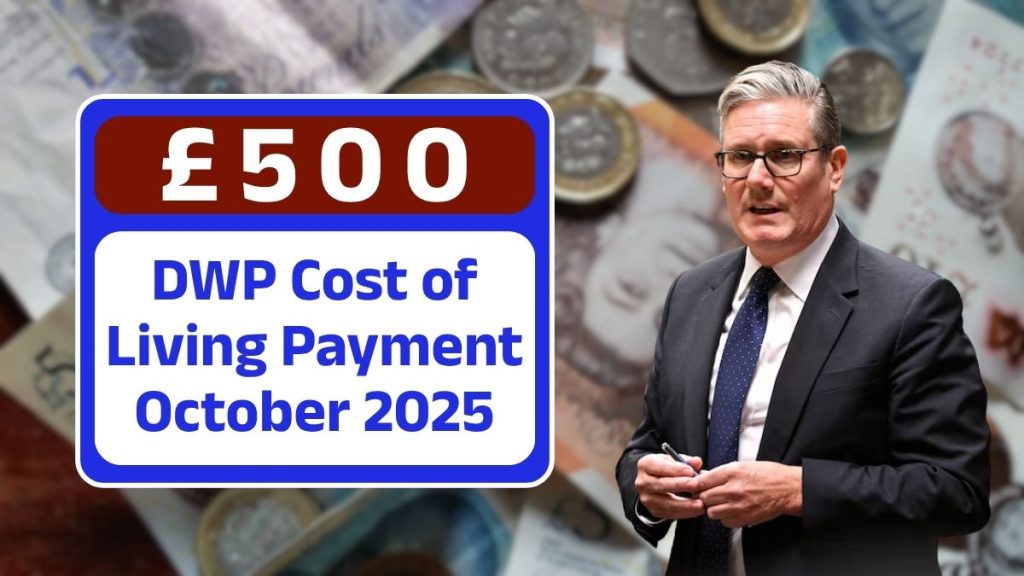The UK government has announced a major State Pension increase for 2025 with pensioners set to receive up to £5,600 per year. This increase is designed to help retirees manage the rising cost of living, including high energy bills, housing expenses, and everyday essentials.
This guide explains the full details of the 2025 pension rise, including eligibility criteria, payment dates, how the triple lock works, and how pensioners can ensure they receive the maximum benefit.
What Is the 2025 State Pension Increase?

The State Pension is adjusted annually to maintain value against inflation and earnings growth. For 2025, the full basic State Pension will increase significantly, raising annual payments for eligible pensioners to around £5,600.
This adjustment reflects the government’s pledge to safeguard older citizens from financial hardship and to ensure pensions keep pace with the cost of living.
Why Is the Pension Increasing in 2025?
The pension rise is calculated under the triple lock system, which guarantees the highest of three measures:
- Growth in average earnings
- Inflation, measured by the Consumer Prices Index (CPI)
- A minimum of 2.5%
For 2025, strong wage growth and persistent inflation have triggered a substantial rise, helping pensioners protect their spending power.
Who Is Eligible for the £5,600 Pension?
Not every pensioner will automatically receive the full amount. Eligibility is based on:
- Age – You must have reached the State Pension age (currently 66, rising to 67 in the coming years).
- National Insurance (NI) record – A full pension typically requires 35 qualifying years of contributions or credits.
- Residency – You must have lived in the UK for a qualifying period. Shorter NI histories result in proportionally reduced pensions.
How Much Will Pensioners Actually Receive?
The exact amount depends on your record:
- Full new State Pension (2025): £5,600 per year.
- Partial pension: Reduced proportionally if you have fewer than 35 qualifying years.
- Additional State Pension (SERPS/S2P): May increase totals beyond £5,600 for some.
Checking your National Insurance record is crucial to confirm entitlement.
When Will the Payments Start?
The updated State Pension rates will take effect from April 2025. Pensioners will see the new amounts reflected in their monthly payments depending on their scheduled payday.
The government urges pensioners to monitor bank statements and DWP letters to ensure the rise is applied correctly.
How to Check Eligibility and Pension Records
Pensioners can check their records and projected payments through:
- The official GOV.UK State Pension portal
- Logging in with Government Gateway ID
- Reviewing NI contribution history and entitlement forecasts
This ensures pensioners are fully prepared and can take steps if gaps exist.
Additional Support Alongside the Pension Rise
The 2025 increase is only part of the financial support available. Pensioners may also qualify for:
- Winter Fuel Payment – Help with heating costs.
- Cold Weather Payments – Extra support during severe cold spells.
- Pension Credit – Additional income for low-income retirees.
- Council Tax reductions – Available in many local areas.
Together, these schemes can provide significant relief on top of the State Pension.
What If You Haven’t Paid Enough NI Contributions?
If you fall short of the required 35 years, you can still:
- Receive a partial pension based on qualifying years.
- Pay voluntary NI contributions to fill gaps.
- Claim credits for periods spent caring, unemployed, or on maternity leave.
Organisations like Citizens Advice and Age UK provide free guidance on topping up NI records.
Tax Implications for Higher-Income Pensioners
While the pension increase benefits most retirees, those with higher private pensions or earnings should note:
- State Pension is taxable income.
- Higher incomes may push pensioners into a higher tax bracket.
It is important for wealthier retirees to factor this into retirement tax planning.
How This Rise Compares to Previous Years
The 2025 increase is one of the largest in recent history.
- 2025 full pension: ~£5,600
- 2024 full pension: ~£5,200
- 2023 full pension: ~£5,100
The steady upward trend highlights the government’s commitment to maintaining pension value against inflation.
Making the Most of the Increased Pension
Pensioners are encouraged to use the additional income wisely:
- Cover rising energy and utility bills.
- Manage grocery and daily expenses.
- Reduce debts or mortgage obligations.
- Save for emergencies or healthcare costs.
Strategic budgeting ensures the extra funds provide long-term financial security.
Common Questions About the 2025 Increase
Will every pensioner get £5,600?
No, only those with a full NI record. Others will receive pro-rated amounts.
Do I need to apply for the increase?
No, the adjustment is automatic for eligible pensioners.
Is the pension increase taxable?
Yes, State Pension is taxable income, though many retirees remain under the personal allowance threshold.
Will it affect Pension Credit?
Yes, higher pension payments may alter eligibility for means-tested benefits.
When will I see the new amount?
From April 2025, reflected in your monthly State Pension payments.
Planning Ahead for Retirement Security
The 2025 pension rise highlights the importance of long-term planning. Pensioners and those nearing retirement should:
- Check their NI records regularly.
- Consider additional workplace or private pensions.
- Budget for rising inflation and living costs.
- Explore government schemes for low-income support.
Planning early ensures financial stability throughout retirement.
Official Help and Guidance
For accurate information, pensioners should rely on:
- UK Government’s pension website
- DWP helplines for queries about eligibility and payments
- Age UK and Citizens Advice for free financial advice
- HMRC for NI contribution queries
These trusted sources provide the most up-to-date guidance.
FAQs – State Pension 2025
Q1. How much is the new UK State Pension for 2025?
Up to £5,600 per year for those with a full NI record.
Q2. When will the new pension payments begin?
From April 2025, with payments made monthly.
Q3. Do I need to apply for the increase?
No, payments are automatic for those eligible.
Q4. What if I don’t have 35 years of NI contributions?
You may receive a partial pension, and you can make voluntary contributions to increase it.
Q5. Will the increase affect my taxes?
Yes, the pension is taxable, but many retirees remain below the taxable threshold.

















